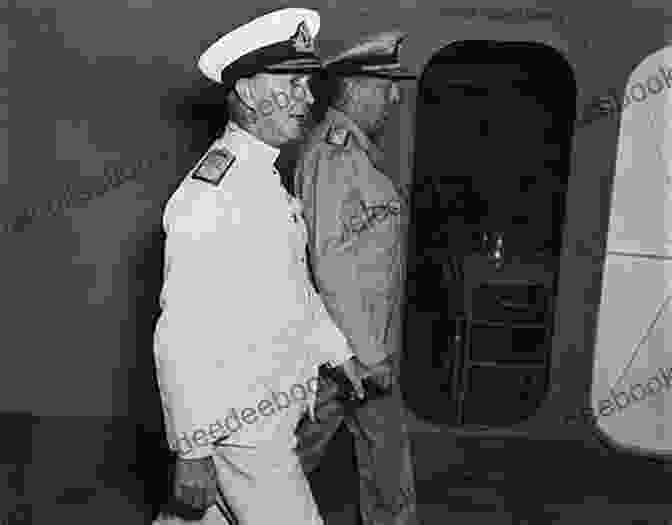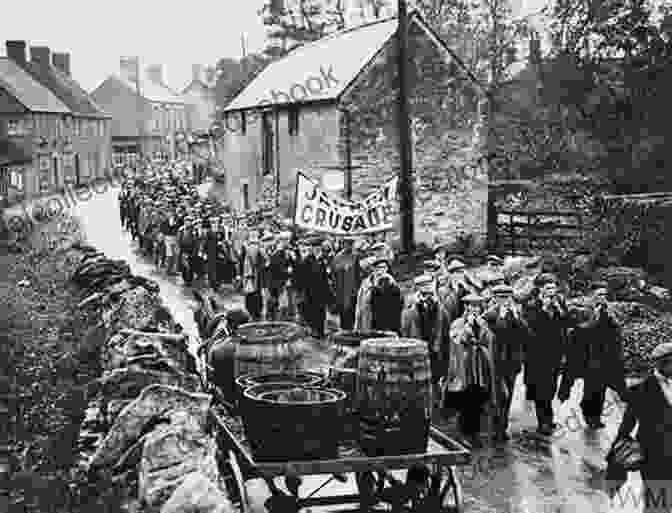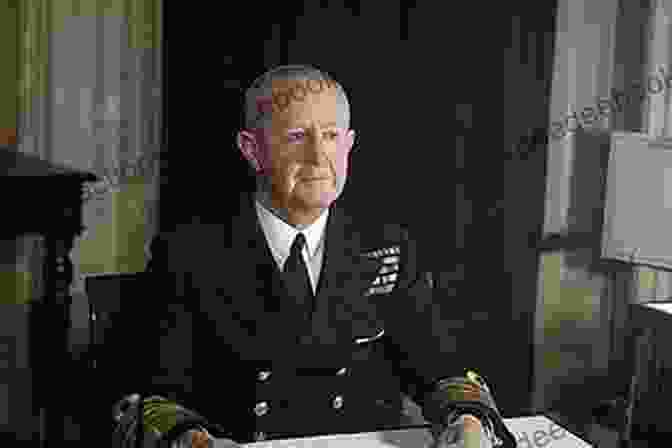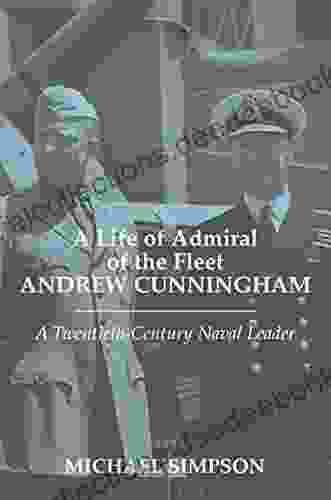The Extraordinary Life of Admiral of the Fleet Andrew Browne Cunningham, 1st Viscount Cunningham of Hyndhope

Early Life and Naval Beginnings

Andrew Browne Cunningham was born on January 7, 1883, in Rathmines, Dublin, Ireland. His father, Colonel Alexander Cunningham, was a distinguished British Army officer, while his mother, Isabella Browne, came from an influential Irish family. From a young age, Cunningham exhibited a keen interest in the sea and a desire to pursue a career in the Royal Navy.
4 out of 5
| Language | : | English |
| File size | : | 2238 KB |
| Text-to-Speech | : | Enabled |
| Enhanced typesetting | : | Enabled |
| Word Wise | : | Enabled |
| Print length | : | 497 pages |
| Screen Reader | : | Supported |
| X-Ray for textbooks | : | Enabled |
In 1897, at the age of 14, Cunningham joined the Royal Naval College, Osborne, as a cadet. He excelled in his studies and quickly rose through the ranks, earning his commission as a sub-lieutenant in 1901. His early naval career saw him serve on various ships and in different parts of the world, including the Mediterranean, the Far East, and the Americas.
World War I and Gallipoli

With the outbreak of World War I in 1914, Cunningham found himself serving as a torpedo officer on the battleship HMS Warspite. He participated in the Battle of Jutland in 1916, where he played a crucial role in the destruction of the German battleship SMS Bayern. Cunningham's bravery and determination during the battle earned him the Distinguished Service Order (DSO).
In 1915, Cunningham was assigned to the Dardanelles Campaign, where he commanded a destroyer flotilla during the ill-fated Gallipoli landings. Despite the challenges and setbacks faced by the Allied forces, Cunningham's leadership and innovative tactics stood out. He was instrumental in the evacuation of the Allied troops from the Gallipoli peninsula in 1916.
Interwar Years and Rise to Prominence

After the war, Cunningham continued to rise through the ranks of the Royal Navy. He served as a naval attaché in Italy from 1920 to 1922, where he gained valuable experience and insights into naval strategy and tactics. In 1927, he was appointed Captain of the Royal Naval College, Dartmouth, a prestigious training institution for future naval officers.
During the interwar years, Cunningham played a key role in the development of the Royal Navy's fleet and doctrine. He advocated for the modernization of the Navy, emphasizing the importance of aircraft carriers, submarines, and fast, maneuverable warships. His forward-thinking ideas and innovative approaches would later prove invaluable during World War II.
World War II and Mediterranean Command

With the outbreak of World War II in 1939, Cunningham was appointed Commander-in-Chief of the Mediterranean Fleet, a crucial theater of operations that included the Mediterranean Sea and the North African coast. His task was to protect British interests in the region and counter the growing threat posed by the Italian Navy and the Axis powers.
Cunningham immediately set about reorganizing and strengthening the Mediterranean Fleet. He introduced new tactics and strategies, focusing on mobility, flexibility, and the effective use of airpower. Under his leadership, the Mediterranean Fleet fought a series of decisive battles that turned the tide of the war in the Mediterranean.
In 1940, Cunningham's fleet defeated the Italian Navy at the Battle of Calabria, preventing the Axis from gaining control of the central Mediterranean. In 1941, he masterminded the successful evacuation of Allied troops from Crete in the face of an overwhelming German attack. And in 1942, he played a crucial role in the Allied invasion of North Africa, providing naval support and coordination for Operation Torch.
Cunningham's leadership and strategic acumen during World War II earned him widespread recognition and respect. He was promoted to Admiral of the Fleet in 1943 and created 1st Viscount Cunningham of Hyndhope in 1945.
Post-War Career and Legacy

After the war, Cunningham continued to serve in various high-level positions, including First Sea Lord (1943-1946) and Chief of the Naval Staff (1946-1948). He retired from the Royal Navy in 1948, but remained active in public life as an elder statesman and advisor.
Throughout his distinguished career, Admiral of the Fleet Andrew Browne Cunningham, 1st Viscount Cunningham of Hyndhope, left an enduring legacy. He was renowned for his exceptional leadership qualities, his innovative strategic thinking, and his unwavering determination. His achievements during World War II played a pivotal role in shaping the course of the conflict and securing victory for the Allies.
Cunningham's legacy continues to inspire and motivate generations of naval officers and military leaders. His leadership style, which emphasized decentralized decision-making, empowering subordinates, and fostering a positive and supportive environment, has become a model for effective leadership in any field.
Admiral of the Fleet Andrew Browne Cunningham, 1st Viscount Cunningham of Hyndhope, passed away on June 30, 1963, at the age of 80. He is remembered as one of the most выдающиеся naval commanders in British history, a true icon who left an indelible mark on the world of sea power.
4 out of 5
| Language | : | English |
| File size | : | 2238 KB |
| Text-to-Speech | : | Enabled |
| Enhanced typesetting | : | Enabled |
| Word Wise | : | Enabled |
| Print length | : | 497 pages |
| Screen Reader | : | Supported |
| X-Ray for textbooks | : | Enabled |
Do you want to contribute by writing guest posts on this blog?
Please contact us and send us a resume of previous articles that you have written.
 Novel
Novel Page
Page Text
Text Story
Story Genre
Genre Magazine
Magazine Paragraph
Paragraph Bookmark
Bookmark Shelf
Shelf Glossary
Glossary Foreword
Foreword Preface
Preface Synopsis
Synopsis Annotation
Annotation Manuscript
Manuscript Scroll
Scroll Bestseller
Bestseller Classics
Classics Autobiography
Autobiography Encyclopedia
Encyclopedia Dictionary
Dictionary Narrator
Narrator Character
Character Librarian
Librarian Borrowing
Borrowing Stacks
Stacks Archives
Archives Periodicals
Periodicals Study
Study Research
Research Academic
Academic Reading Room
Reading Room Rare Books
Rare Books Special Collections
Special Collections Interlibrary
Interlibrary Literacy
Literacy Study Group
Study Group Storytelling
Storytelling Book Club
Book Club Textbooks
Textbooks Sarah E Fiarman
Sarah E Fiarman Ann Linnea
Ann Linnea David Blum
David Blum Sandra Marie
Sandra Marie Michael Richardson
Michael Richardson J D Salinger
J D Salinger Aaron Chase
Aaron Chase Craig Garber
Craig Garber Rik Peeters
Rik Peeters Jessica Gunderson
Jessica Gunderson Alpha Bull Traders
Alpha Bull Traders Anne Braden
Anne Braden Al Gregg
Al Gregg Robin Mastro
Robin Mastro Steven Haines
Steven Haines George M Jacobs
George M Jacobs Heather Vogel Frederick
Heather Vogel Frederick Michael R Underwood
Michael R Underwood Maureen Sullivan
Maureen Sullivan Bryan Washington
Bryan Washington
Light bulbAdvertise smarter! Our strategic ad space ensures maximum exposure. Reserve your spot today!

 Isaiah PowellUnveiling the Extraordinary Stop Bot Julia Watts: A Journey into Cybernetic...
Isaiah PowellUnveiling the Extraordinary Stop Bot Julia Watts: A Journey into Cybernetic...
 Jacques BellPutin: Philip Short Paints a Picture of a Man at the Heart of Russian History
Jacques BellPutin: Philip Short Paints a Picture of a Man at the Heart of Russian History Amir SimmonsFollow ·8.5k
Amir SimmonsFollow ·8.5k Robert Louis StevensonFollow ·15.7k
Robert Louis StevensonFollow ·15.7k Chance FosterFollow ·14.2k
Chance FosterFollow ·14.2k Anton FosterFollow ·10.4k
Anton FosterFollow ·10.4k Isaiah PowellFollow ·14.1k
Isaiah PowellFollow ·14.1k Octavio PazFollow ·19.6k
Octavio PazFollow ·19.6k John GrishamFollow ·18.9k
John GrishamFollow ·18.9k Jacob FosterFollow ·10.8k
Jacob FosterFollow ·10.8k

 Andy Hayes
Andy HayesEmbracing Now: Embark on a Mindfulness Journey for a...
In a world...

 Heath Powell
Heath Powell100 Hymns for Violin and Guitar: A Comprehensive Guide to...
The violin and...

 Floyd Richardson
Floyd RichardsonBark In The Park: Poems For Dog Lovers
Dogs are our best...

 Douglas Adams
Douglas AdamsThe Barter Crusade: A Journey into the Realm of Exchange...
In a world driven by monetary transactions,...

 Nathaniel Hawthorne
Nathaniel HawthorneInsight Guides Explore Nice & the French Riviera...
Prepare to embark on an unforgettable journey...

 Carlos Fuentes
Carlos FuentesThe Ultimate Practical Guide to Percussion: Exploring the...
Embark on a journey into the enchanting...
4 out of 5
| Language | : | English |
| File size | : | 2238 KB |
| Text-to-Speech | : | Enabled |
| Enhanced typesetting | : | Enabled |
| Word Wise | : | Enabled |
| Print length | : | 497 pages |
| Screen Reader | : | Supported |
| X-Ray for textbooks | : | Enabled |








